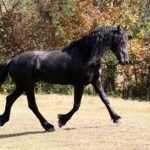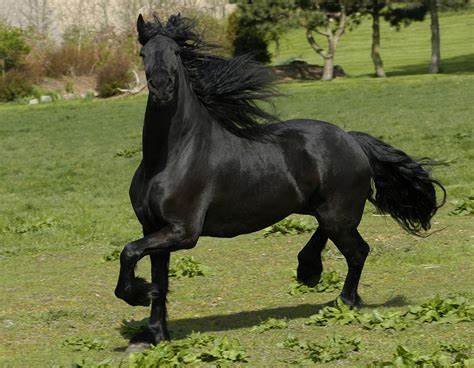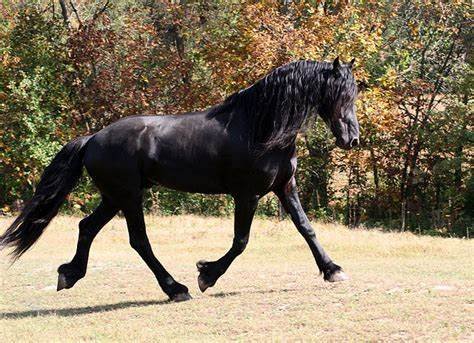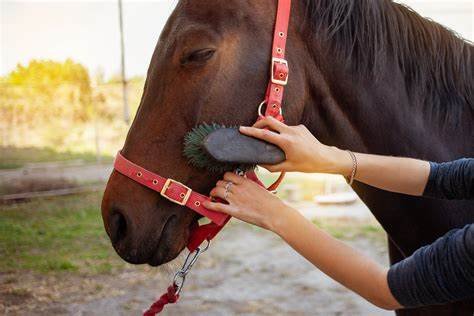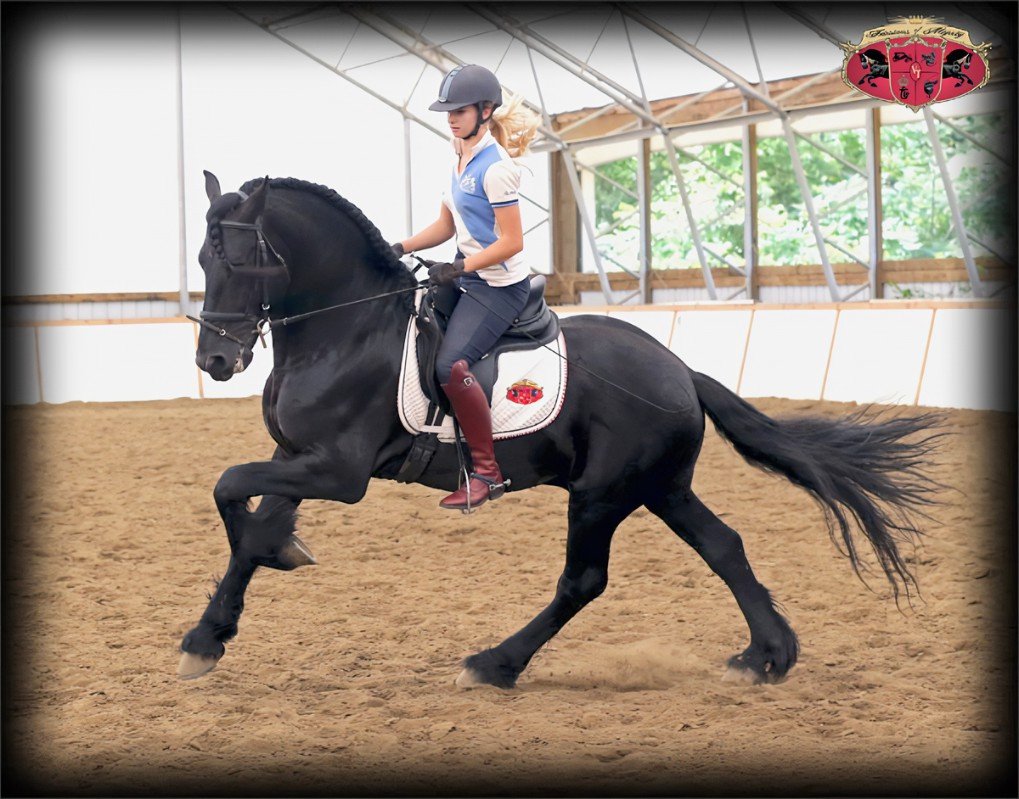Friesian horses are known for their striking beauty, strong build, and versatility in various equestrian disciplines. Despite their robust appearance, Friesians are prone to specific health issues, just like any other breed. It’s important for Friesian horse owners to understand these potential health challenges to ensure the well-being of their horses. In this article, we’ll discuss some common health issues in Friesian horses, their symptoms, and how to manage or prevent them.

Joint Problems and Arthritis
Due to their large size and heavy build, Friesian horses are more susceptible to joint problems, particularly arthritis. These issues often develop over time, especially in older horses or those that are worked heavily. Joint inflammation can cause pain and stiffness, leading to reduced mobility.
Symptoms:
- Lameness or limping
- Swelling around the joints
- Difficulty moving, especially after rest
- Decreased performance in work or training
Management:
To manage joint problems, Friesian horses can benefit from joint supplements that support cartilage and reduce inflammation. Regular, low-impact exercise can help keep the joints flexible. In some cases, a veterinarian may recommend anti-inflammatory medications or joint injections for pain relief.
Laminitis
Laminitis is a painful condition that affects the hooves, causing inflammation of the tissues inside the hoof that connect the hoof wall to the bone. Friesians, due to their larger frame and weight, are more prone to developing laminitis, especially if they are overweight or have metabolic issues.
Symptoms:
- Lameness, especially in the front feet
- Heat in the hooves
- Reluctance to move or walking with a “heel-to-toe” gait
- Changes in hoof shape or structure
Management:
Preventing laminitis starts with maintaining a healthy weight and ensuring the horse is not overfed with high-sugar or high-starch foods. Regular hoof care and trimming are essential, as well as providing a comfortable, supportive environment. If laminitis occurs, prompt veterinary care is necessary, and treatment typically includes pain management, dietary changes, and rest.
Equine Metabolic Syndrome (EMS)
Equine Metabolic Syndrome (EMS) is a condition in which Friesians may experience abnormal fat deposition, insulin resistance, and an increased risk of laminitis. EMS is common in horses that are prone to obesity or have an excess intake of rich pastures and grain.
Symptoms:
- Abnormal fat deposits, especially around the neck, shoulders, and hindquarters
- Easy weight gain
- Difficulty losing weight
- Increased risk of laminitis
Management:
EMS can often be controlled through a strict diet, low in sugar and starch. A controlled exercise plan is also necessary to help manage weight and improve insulin sensitivity. Regular monitoring of body condition and regular veterinary check-ups are crucial for managing EMS in Friesians.
Reproductive Issues in Mares
Friesian mares are often bred for their elegant conformation and gentle temperament. However, they are susceptible to reproductive issues, including uterine infections and difficulties during pregnancy and foaling. Some mares may also struggle with hormonal imbalances, leading to irregular cycles or difficulty conceiving.
Symptoms:
- Irregular estrus cycles
- Difficulty getting pregnant
- Signs of infection, such as discharge or fever
- Difficulty during labor or foaling
Management:
Regular veterinary exams are crucial for monitoring reproductive health. If a mare is having trouble breeding or carrying a pregnancy, a vet can offer advice on treatments or management options. Maintaining a healthy diet, minimizing stress, and keeping the mare in good physical condition can help reduce the risk of reproductive issues.
Equine Infectious Anemia (EIA)
Equine Infectious Anemia (EIA) is a viral disease that can affect Friesian horses, transmitted by biting insects, such as flies or mosquitoes. This disease causes fever, weight loss, and swelling, and it can be fatal in severe cases.
Symptoms:
- Fever and fatigue
- Loss of appetite
- Swelling, especially in the legs or abdomen
- Weight loss and poor coat condition
Management:
There is no cure for EIA, and infected horses are typically quarantined and may be euthanized to prevent the spread of the disease. Regular blood tests for EIA are necessary to catch the disease early. Preventive measures include controlling insect populations and practicing good biosecurity on the farm.
Conclusion
Friesian horses, while generally healthy, are susceptible to certain health issues due to their size and specific genetic traits. It is important for owners to be aware of these common health problems and seek prompt veterinary care when necessary. With regular check-ups, proper nutrition, and a well-maintained environment, many of these conditions can be managed or prevented. By understanding the unique health needs of Friesian horses, owners can ensure these beautiful animals lead long, healthy, and happy lives.






